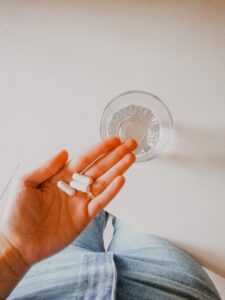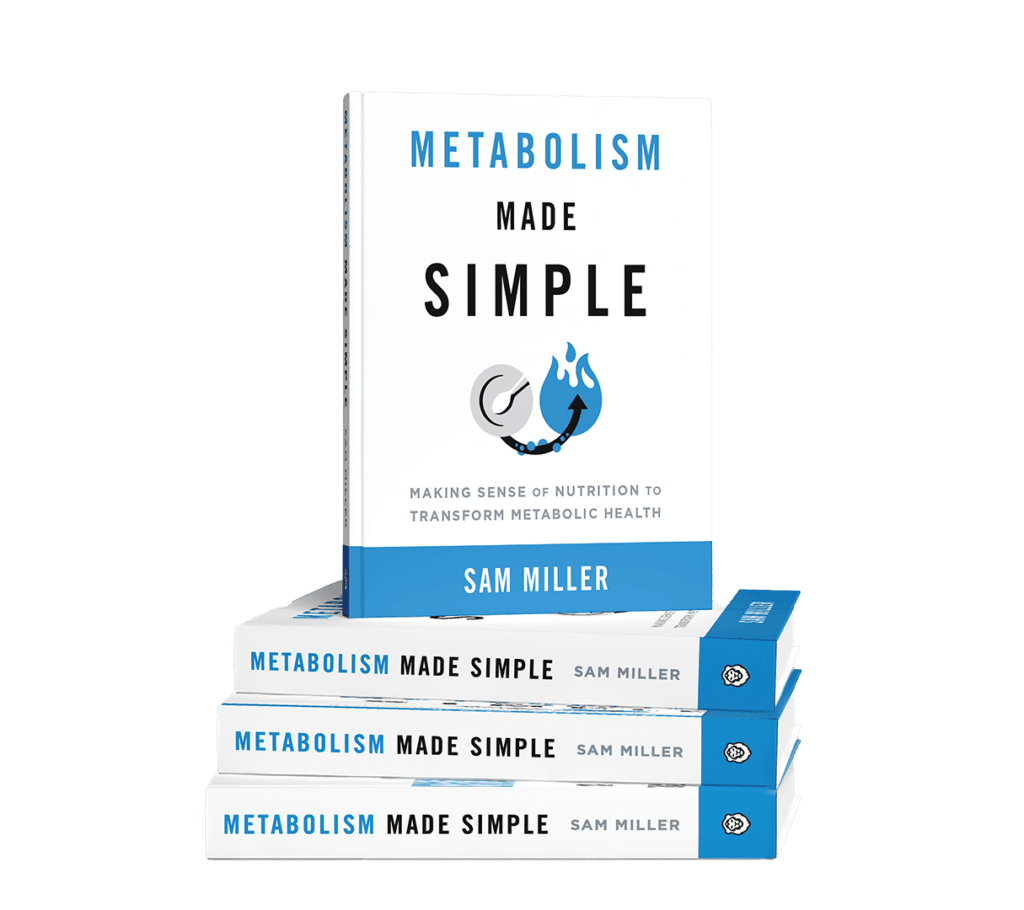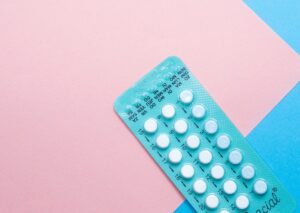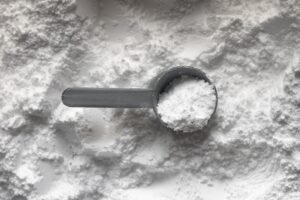When it comes to fitness and getting in shape, one of the first questions on the average person’s mind is, “What supplements do I NEED?!” which savvy coaches will know is the wrong question. Ninety-five percent of fitness supplements have exaggerated marketing and may only make a minor difference.
However, there’s one supplement that stands out amongst the rest and actually works. Backed by hundreds of research studies since the 1960s, it’s shown improvements to performance, muscle gain, strength, and even cognition over time. You might have guessed what supplement we’re addressing today – creatine. This will be your ultimate guide to the most researched sports supplement of all time.
Table of Contents
Why You Should Take Creatine
Many people tend to gloss over creatine because it has been around forever and doesn’t tend to get a ton of marketing dollars. Part of why the value of creatine may be diminished is that it gets placed into a category with other pre-workout supplements, such as things like beta-alanine, citrulline malate, or glycerol.
Now I personally like citrulline malate, but creatine has the most research or the most extensive backing when it comes to sports nutrition.
Newer research shows that creatine has numerous other benefits to health besides that of sports performance – benefits specifically around brain health and cognition.
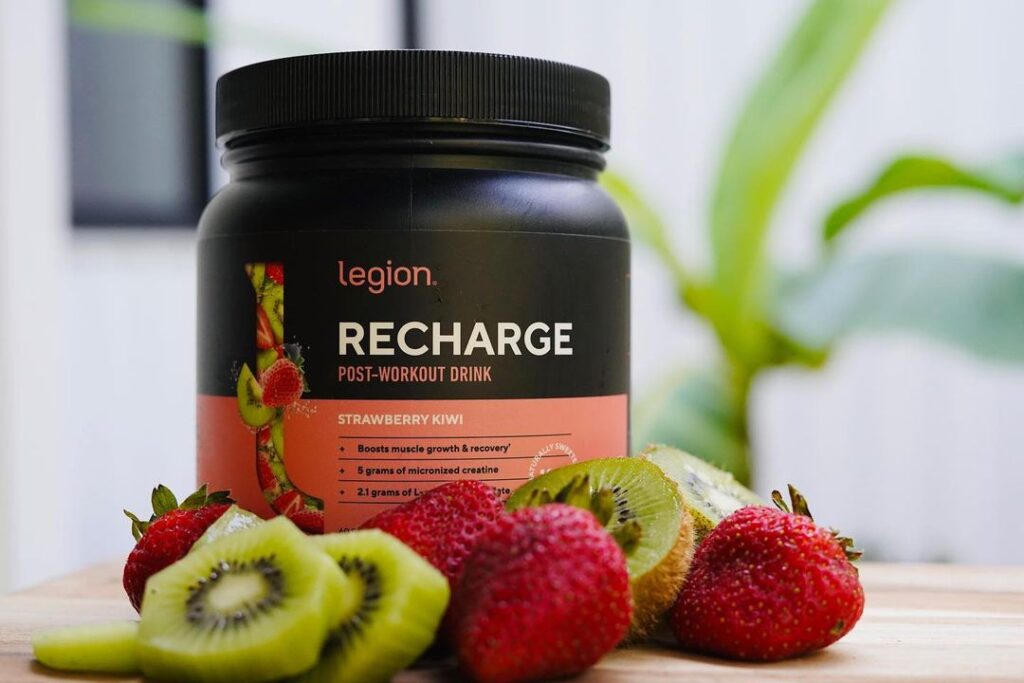
Creatine Myths and Misinformation
With multiple hundreds of human studies since creatine first came around, creatine supplements have not only proven to be safe, but they are actually effective for just about any fitness goal you could have: a performance goal, a muscle gain goal, or even maintaining muscle while you’re losing fat. While marketing may make you believe otherwise, the same thing can’t be said for other dietary supplements in that category.
Regardless, there’s still a ton of confusion and misinformation about creatine to the point where even within the last year, I’m pretty sure I posted something along the lines of: update, creatine still isn’t a steroid. It elicited different emotional responses from everyone to the point where there are Instagram reels going around about it.
Women especially, but even some men in a fat loss phase, seem to avoid creatine supplements. This might be because of the dreaded “creatine bloat” — which, by the way, doesn’t really exist in terms of subcutaneous water retention, but there’s a chance that maybe they just had one bad experience with creatine and they haven’t really gone back to it.
We’ll dive deeper into myths about creatine supplementation later in this article.
What You Should Know About Creatine Supplements
Maybe you’ve had a client take a creatine supplement, or you’ve taken it yourself, and they gained a few pounds in a couple of days. Maybe you’ve felt slightly puffy and you freaked out because you were in a fat loss phase, so you just stopped it.
Maybe you’re a guy, and you have concerns because you heard creatine supplements might cause hair loss, or perhaps you’ve heard story after story of people in the industry being worried about their kidneys being on the verge of shutting down from taking creatine supplements.
Now, a lot of these claims are false, so we’re gonna clarify all of these later on in the post. We’re also going to clear things up around creatine dosing as well, along with questions such as:
- Is a creatine loading phase necessary?
- How much performance, hypertrophy, or extra recovery can we legitimately expect from creatine supplements?
- Does creatine supplementation lead to dehydration or muscle cramps?
We’re gonna go into all of these to answer all of your and your client’s burning questions about taking creatine supplements, what creatine does in the body, the benefits of creatine for exercise performance and muscle mass, the benefits of creatine for cognitive performance, and the myths and misconceptions on things like how creatine supplementation impacts kidney function and hair loss.
What is Creatine?
First off, the human body produces creatine naturally. The liver actually creates it from a combination of amino acids, so this should cue you into the fact that it’s an important biological molecule. Creatine isn’t just this passerby, so to speak, or a random supplement that we’ve engineered.
It’s actually something that is natural, and I think a lot of people think of creatine as a synthetic thing. Now, sure, you can add more creatine to the equation, but it shouldn’t be viewed any differently than using amino acid or protein supplementation. You’re augmenting what’s already present in the body.
Effects of Creatine Supplementation
Creatine acts by providing a little bit of extra ATP during high-intensity exercise. ATP is the universal currency of energy all throughout the body, and is the end product of energy production from carbs and fats, for example. More effects include hyper-hydration of the muscle cell, increased glycogen storage, and decreased markers of muscle damage when someone takes a creatine supplement.
All of these higher-order effects lead to the downstream results we know and love: increased work capacity, increased recovery, and more muscle mass and strength over time.
Creatine supplements can also increase cognition in certain contexts — in those who are likely to be creatine deficient and in contexts where there’s increased brain ATP turnover, which will also be explained later. People who fall into the first category would be the elderly and vegans. The elderly do not synthesize it as regularly, and vegans do not get any creatine naturally from their diets.
The second category, creatine deficiency due to increased brain ATP turnover, would be caused by things like sleep deprivation, complex problem solving, low oxygen states, or even a traumatic brain injury. Creatine supplements could be valuable if you work with athletes and they’ve had a concussion, or you yourself may have had a head injury.
As someone who’s had a pretty significant concussion in the past, I find that aspect very attractive.
Research supports the fact that creatine supplements do not damage the kidneys or lead to kidney disease and more than likely do not contribute to male pattern baldness. I’ll dive into the actual research later in the post.
Another common question fitness coaches get about creatine supplements is what type is the best. Without a doubt, creatine monohydrate is still the best form to take, despite expensive marketing being put behind the novel, newer forms. Creatine supplements are best taken post-workout with carbohydrates and protein to increase muscle saturation. Loading creatine is not necessary but it can be done for faster saturation of stores.
I would also note that consistency is the most important thing with creatine supplements. So if you can’t take it post-workout for whatever reason, but you remember more easily to take it in the morning, don’t worry about not consuming it at the “optimal time.” Taking a consistent daily dose will eventually saturate your stores.
How Do Creatine Supplements Affect the Body
Creatine supplements shouldn’t be viewed differently than whey protein supplementation or taking an amino acid since it’s naturally produced in the body. It’s also present in foods, namely red meat and seafood. Whether you are a pescatarian or a carnivore, you are consuming creatine naturally.
Although creatine supplements can certainly help you reach your fitness goals, it is not to be viewed in the same category as performance-enhancing drugs or hormones. There still exists a stigma attached to creatine in that respect, so I’ll drive this home: When you’re supplementing with creatine, you’re not actually supplementing with something totally foreign, but you’re augmenting what your body already produces and what’s coming in from your diet.
The liver produces creatine from a combination of amino acids and about 90–95% of creatine is present in skeletal muscle, with the other 5–10% being in the brain. There are also trace amounts of creatine within male testicles.
To understand one of the main things that creatine does in the body, you have to understand energy systems.
How Creatine Impacts Energy Systems
In a nutshell, we’ve got three main energy systems. If you’ve taken a cert or sports physiology class, you’ve definitely heard of these, so its time to brush off the cobwebs. We’ve got the aerobic system, the anaerobic lactic system, and the anaerobic phosphocreatine system. The aerobic system generates ATP through the mitochondria and is what we normally use at rest, walking, or low-intensity exercise.
As intensity starts climbing to more moderately-high or high-intensity exercise, the energy demand outpaces the energy that can be supplied by the aerobic system, so we switch over to a different system, which is the anaerobic lactic system. This system can be used for up to 90 seconds and generates metabolites that cause a burning sensation within the muscle.
Finally, we have the anaerobic phosphocreatine system. This system is less talked about and less known, but it’s right there in the name. This is the system that creatine influences. The anaerobic phosphocreatine system is tapped into during very high intensities and can only be maintained for about 10 seconds. In the muscle, about 60–70% of creatine is stored as phosphocreatine and the rest as free creatine.
Let’s consider ATP for a second. This is the molecule that fuels most biological functions in the body and is responsible for muscle contraction. Its full name is adenosine triphosphate.
Phosphocreatine. Tri-phosphate. There’s something in common there. When the muscles contract during high intensities, you’re burning through ATP at a seriously fast rate, and when an ATP breaks down in the process of being used to fuel contraction, it loses one of its phosphate groups, becoming ADP.
In swoops phosphocreatine, which donates its phosphate group, which regenerates ADP back to ATP, and now we’re ready to pump out some more reps in a shorter amount of time. This can serve some benefit if you’re resistance training, sprinting, or doing any sort of anaerobic power or resistance activity.
Therefore, when you’re saturating your creatine stores, you’re giving yourself just a little bit extra ATP for use during higher intensities. This is one of the factors that translates to being able to add those couple of extra reps in moderate to high rep sets when we were exercising. In terms of real effects, once stores are saturated, you can expect a minor increase in reps performed at moderate intensities anywhere from the 8–30 rep range.
It might not have the same immediate, acute effect if we’re talking about doubles and triples and you’re doing more powerlifting. However, we do see increases in 1-rep max and strength over time with resistance training, so there is a carryover, but a lot of what we have is really a little bit of a higher rep range in terms of acute effects.
How Creatine Affects Muscle Growth and Strength
We know that the total amount of quality volume is one of the main things that drives muscle growth, so if we can perform a few more quality reps on all of our exercises because of saturated creatine stores, then we can probably expect to achieve more muscle mass over time. Many studies consistently show significantly larger increases in muscle mass in groups taking creatine supplements versus groups that aren’t when doing the same resistance training regimen.
Similarly, we consistently see increases in athletic performance through strength and 1-rep max over time as well. Since we know that the increased muscle mass translates to stronger muscles as well, the increased performance isn’t just relegated to body-building style training either — any training that taps into those high-intensity energy systems benefits from creatine.
Since ATP can actually regenerate faster, you might think you can perform more work in less time as well. You’d be right; this has been shown for sprinting, sprint cycling, and other similar exercises. For example, creatine supplementation significantly improved sprint speed during a 100-meter sprint in several studies. This was also directly after a loading phase, not necessarily after a period of time where you were training with creatine, taking it consistently every single day.
You can also expect this effect to bleed into other glycolytic activities like CrossFit since it’s almost like a sprint with weights, depending on the event. This would translate to being able to perform your WODs slightly faster with maybe a few more reps compared to before taking a creatine supplement when you weren’t able to pull those reps out of the tank.
How Creatine Works in the Body
Let’s switch gears and talk more about what creatine does to elicit some of its positive effects. I’ve been all but beating a dead horse about its actual benefits, but let’s dive further into the mechanism beyond faster ATP regeneration.
Creatine Helps With Intramuscular Hydration
The first thing creatine does is hydrate muscle cells, which has implications for performance, muscle growth, and resistance to dehydration. Some folks are actually blaming creatine supplements for dehydration, which simply isn’t the case.
Creatine supplementation has been shown to be able to increase lean body mass directly after a loading phase. Creatine, much like sodium, is osmotic in nature, meaning it has a tendency to draw water with it wherever it goes. Therefore, when creatine gets taken up into the muscle cell, so does water, and therefore creatine supplements hydrating muscle cells to a greater extent. This means your increase in intramuscular water will be one of the things responsible for the gains in lean tissue mass.
This increase in muscle size from hydration isn’t the only thing that’s happening, and it’s not only aesthetic, either. There’s actually significant evidence that a well-hydrated muscle performs anabolic signaling much more efficiently. This may be another mechanism by which we see more muscle growth over time, as well as increased exercise recovery in general from taking creatine supplements.
Not only that, but researchers took this idea and tested whether or not taking creatine supplements can help maintain or increase performance in hot environments by delaying dehydration, and lo and behold, this effect was seen. In one study, researchers reported that creatine supplementation reduced thermoregulatory and cardiovascular response to prolonged exercise. Translating that to metrics, it kept heart rate, rectal temperature, and sweat rate down compared to those who didn’t take creatine supplements. Besides the fact that the participants had to get a thermometer shoved where the sun don’t shine, the creatine users were in much better shape and had better athletic performance.
Creatine Increases Glycogen Storage
We also see increased glycogen storage from taking creatine supplements, so this is another one that facilitates immediate performance but also more muscle growth over time. For example, mechanistically, a creatine supplement loading protocol of 20 grams over five days, even without any resistance training, showed an upregulation of the glucose transporter, GLUT4, which is basically the door that lets carbohydrates into the muscle.
The mechanism is there in theory, but then we have many studies actually looking at glycogen storage capacity and glycogen storage levels in athletes and other participants. For example, one study looked at two groups of resistance-trained individuals who completed a glycogen-depleting workout. One took creatine supplements and one did not take creatine supplements.
During the subsequent carbohydrate and glycogen loading protocol, the group that took the creatine supplements had significantly higher glycogen levels than those who didn’t take a creatine supplement, and even more than that, groups that took creatine supplements also saw less glycogen depletion overall during a longer high-intensity lifting protocol.
Interestingly enough, it was recently found that even a modest decrease in glycogen on the order of about 38% from max storage significantly decreases performance. You don’t need to be near depletion for your performance to suffer.
Taking creatine allows you to store more glycogen and maintain glycogen at higher levels during exercise, both of which aid in performance and are probably adding to strength and muscle growth over time.
Creatine Reduces Muscle Damage and Oxidative Stress
Finally, we also consistently see reduced markers of muscle damage and oxidative stress in response to exercise when an individual takes creatine supplements. The mechanism is probably a mix of everything we’ve already talked about, but these are definitely more direct metrics that show an increase in overall recovery capacity compared to not taking a creatine supplement.
What we see fairly instantly after stores are saturated is an increase in the amount of work that’s able to be performed after taking creatine, whether that’s a few more reps on sets, slowly increasing your volume, maintaining a running or sprint speed for a little bit longer, or completing your WODs a little bit faster. However you look at it, athletic performance improves.
The acute increased lean body mass from intramuscular water storage and glycogen, which then leads to better recovery, maybe getting a little bit of a better pump, and ultimately means more strength, more muscle mass, and better exercise performance over time.
Now let’s move to the brain gains. Outside of just what’s going on in terms of hydration of muscle cells and increased reps in the gym, we also have potential cognitive benefits.

Cognitive Benefits of Creatine
As we mentioned earlier, 5–10% of our body’s creatine is in the brain, and in disorders where creatine synthesis is inhibited, we see concurrent developmental disorders such as intellectual disabilities, autism, learning delays, and seizures, so we know that creatine is critical for cognitive health.
The question is if we actually see cognitive benefits from supplementing creatine, and the answer is yes, although not necessarily across the board, but in certain contexts. Context is key here, which is frequently the case in nutrition, workout, and dietary supplement programming.
In a nutshell, we see the benefits of creatine supplementation on brain function in two broad situations.
First, those who are probably creatine deficient. The second would be in situations of rapid or altered brain ATP turnover, such as during complex cognitive tasks, deep problem solving, hypoxia (low brain oxygen; so sleep apnea, altitude, etc.), sleep deprivation, traumatic brain injuries, and some neurological conditions.
Creatine Deficiency
To address the first point, the groups of individuals who are likely to have lower brain creatine are vegans, vegetarians, and the elderly.
Vegans and vegetarians are prone to lower creatine because they are not really eating any foods that contain creatine, and they must plan very well in order to eat enough protein, so this population is more likely to be protein deficient. Since creatine is synthesized from a combination of amino acids, the creation of creatine would be downregulated if protein intake was not adequate as well.
When vegans or vegetarians take creatine supplements, we see an increase in working memory, focus ability, and IQ, so all the vegans and vegetarians out there should have creatine supplements as a staple part of their health, if not for the performance benefits, then the cognitive benefits.
The second demographic, the elderly, could most likely benefit from creatine supplementation in any context. Once you’re older, many things from a physiological perspective start to downregulate and degrade. In addition, food intake has a tendency to go down, and digestion and absorption also have a tendency to take a dive as well, all of which could potentially lead to a creatine deficiency.
Data on Cognitive Benefits of Creatine Supplements
Let’s talk about tangible, quantifiable benefits here with some studies and data. In one particular study looking at creatine’s effects on cognitive function, they supplemented 20 grams per day for seven days in elderly participants. What they found was that creatine supplementation significantly improved performance on random number generation tasks, forward spatial recall, and long-term memory tasks.
Many of the studies that looked at cognitive function in the elderly used much larger doses of creatine like this, potentially ongoing and not just for loading. Creatine uptake by the brain is limited, which has spurred the interest of creatine precursors for the interest of increasing brain creatine.
One of these precursors is called GAA, and a recent study suggested that GAA supplemented at three grams per day increased brain creatine content to a greater degree than creatine monohydrate alone, so keep a lookout for more studies on GAA for brain health.
Combine the cognitive benefits with the fact that creatine supplements have been shown to have large effects even in the daily life of the elderly: increased daily function, less fatigue, increase time to exhaustion in walking tests, and increase muscle strength (without even having to lift weights); you can make an argument that creatine supplements should be a staple in elderly populations.
Literally just adding creatine supplements to their day-to-day life without an exercise routine can have very noticeable effects. Obviously, adding an exercise routine will get one much farther, but some folks need baby steps.
Taking Creatine for Sleep Depravation
Now let’s switch gears and talk about some studies on creatine and sleep deprivation. Once again, in this study, the treatment group was dosed at 20 grams per day for seven days. I’m not saying that you have to go and do that, but this is also usually if they’re loading people; maybe they haven’t been taking creatine before, versus maybe you’ve been doing long-term creatine supplementation at 5 grams per day.
They pre-loaded the 20 grams a day for seven days prior to being sleep deprived. The results demonstrated significantly fewer decreases in performance in running speed, reaction time, balance, and mood state after sleep deprivation in those who took creatine supplements vs. those who didn’t.
Other studies we see include having someone do mentally demanding tasks for 60–90 minutes, like math problems, or something like LSAT logic games, which is the test you have to take to get into law school. In any case, they put individuals through a long series of mentally demanding tests to induce cognitive fatigue, and then they subsequently tested their performance on other tests in that mentally fatigued state. Folks taking creatine had better performance on the test after the mentally demanding tasks, suggesting that they had a little bit better resistance to that mental fatigue.
This could have some big implications. For all of my self-employed folks, my entrepreneurs, and my coaches out here who are running their own businesses and like to crush it with a lot of daily deep work, creatine may actually be acting as a nootropic in these situations.
There was also a study that was conducted on RU rugby players who were sleep deprived, and then they assess the effects of taking creatine on rugby passing skill tests. Sleep deprivation had a tendency to reduce passing accuracy, whereas creatine actually reversed the effect of sleep deprivation.
Creatine’s Effects on the Lungs
There are also some possible beneficial effects on the lungs, as highlighted by this review. Most of these studies are pretty much relegated to animal models for now, however, so significantly more studies would need to be done in humans to adequately address and assess these effects. In mouse models, however, creatine actually has positive effects on the lungs and in reducing lung inflammation.
For one example, in an animal model where the mice were genetically engineered to have inflammation in their lungs, taking creatine helped open their airways.
There’s one single human study that I know of looking at this. Individuals with asthma that did endurance exercise at moderate to high intensities saw decreased severity of their asthma symptoms when taking creatine supplements. The data is super preliminary; it definitely exists mostly in animal models but could be very promising if you have asthma, work with a client that has asthma, or even just have loved ones with asthma.
With all that you know now, if you aren’t supplementing with creatine, you have to ask yourself: Why wouldn’t I be? It’s cheap and it’s effective. It has several applications for a variety of contexts, whether you are 20 years old or pushing 90.
Although there are a few myths and concerns that exist out there, as well as confusion around how and when to take creatine, so let’s go ahead and dispel some myths.
Myths About Creatine
The most important thing to understand is that science is on your side. When it comes to taking creatine, there are a lot of myths and misconceptions. That’s largely because it’s been in the bro science world, the fitness world, the fat loss world, and the bodybuilding world for well over a decade now.
Remember when you were a kid and you played the game of telephone? Creatine myths are like that, and that’s not driven by researchers or by evidence-based sports scientists. It’s driven by most likely well-meaning but misinformed folks in the gym, in forums, and on social media. So let’s get into it. Most of these myths and the cited studies lie in this review here.
- Creatine supplementation can harm the kidneys.
Basically, in 20 years of research into creatine supplementation on kidney function, they haven’t found adverse effects in the kidneys, such as creatine-causing kidney disease. The origin of the myth probably comes from a generally poor understanding of creatinine metabolism.
Whatever creatine isn’t absorbed into the muscle cells breaks down into creatinine. Creatinine levels in the blood are generally used as a proxy for kidney function. Creatinine is actually quite a poor marker of kidney function in a fitness population because higher muscle mass, a high protein diet, creatine supplementation, and working out a lot can all benignly elevate creatinine on serum lab work.
The better marker for kidney function in populations like this would be Cystatin C. This study looks at the potential issues of creatinine as a marker of kidney function.
Since the kidney’s clear creatinine, the traditional thinking is that if clearance is reduced, so is kidney function. This could potentially lead to a misdiagnosis of kidney disease or reduce kidney function.
- Creatine supplementation drives male pattern baldness.
The vast majority of speculation regarding the relationship between taking creatine supplements and hair loss or baldness stems from a single study that occurred in college-aged male rugby players. Kind of odd that many of these creatine studies are done in rugby players, but that’s beside the point.
These guys supplemented with creatine, 25 grams per day for seven days, followed by a 5-gram per day dosing for an additional 14 days. The treatment group experienced a “statistically significant” increase in serum dihydrotestosterone (DHT), which is a typical culprit when it comes to male pattern baldness (MPB), but it’s not quite as simple as that.
The same study didn’t see an increase in male pattern baldness, but the thinking is that this “increase” in DHT could potentially lead to it over time.
When we look a bit closer at this study, however, more nuances come out and we can see the real story. The increase in DHT and the DHT to testosterone ratio remained well within its normal clinical limits, so the participants didn’t have abnormal levels of DHT by any means.
Here’s the kicker, though: The placebo group saw a decrease in DHT due to other unknown variables, so when we compare the treatment group, which had a tiny increase, to the placebo group, which had a moderate decrease, you see an artificial statistically significant “increase.” The creatine group’s DHT only minimally rose above baseline, but since statistical significance is gained by comparing what happened in the treatment group to what happened in the placebo group, we see this “increase.”
Let’s say the placebo group hadn’t gone backward and they were just comparing baseline to normal baseline or normal DHT to slightly elevated, it might not have been statistically significant. Combine that with the fact that many studies since then have tried to replicate these findings, and no study has been able to. Basically, when we look at the whole body of research, no other study identifies increases in DHT, and no studies have shown increases in MPB.
If you experienced an increase in MPB, or you actually test your DHT and noticed it’s elevated after taking creatine, then by all means, feel free to take matters into your own hands and test it by withdrawing creatine and re-testing your levels.
Otherwise, we shouldn’t be spreading myths and misconceptions based on one study that has since not been able to be replicated and whose findings were also largely affected by what happened with the placebo group.
- Creatine causes muscle cramping or dehydration.
In the early 2000s, there was some early limited data that came out that looked like it was showing that creatine causes muscle cramping and dehydration. As a result, the American College of Sports Medicine (ACSM) recommended that individuals controlling their weight and exercising who are in hot environments should avoid taking creatine because of the “dangers of dehydration.” The ACSM very much jumped the gun here and is one of the reasons the myth sticks around today.
The physiological rationale suggesting that taking creatine may cause dehydration and muscle cramping was based on the premise that creatine is basically an osmotically active substance, meaning it draws water with it wherever it goes.
Basically, they were thinking if creatine is sucking up this water with it, and it’s primarily in skeletal muscle, then it must be altering overall fluid distribution by preferentially increasing intramuscular water uptake and then decreasing water in other bodily compartments.
However, every single controlled study that has tested creatine’s effects on dehydration has found the opposite.
For example, in one study that looked at collegiate football players, creatine users actually had less cramping, less heat illness, less dehydration, less muscle tightness, muscle strains, and fewer total injuries compared to those who did not take creatine.
When we look at the totality of the evidence and data here, it’s really not supported to say that creatine is going to cause muscle cramping or dehydration, even if they were previously exploring that relationship.
- To load creatine or not to load?
Whether or not one should load creatine is always a popular question in the industry, but I’m here to confirm that the loading phase is optional.
If you’re unfamiliar, a creatine loading phase would be like taking 20 grams per day for seven days and then subsequently taking a maintenance dose of 3–5 grams per day. This saturates stores in about a week. The other option would just be to just start taking creatine 3–5 grams per day, which would saturate your creatine stores in about a month. It’s up to you in terms of how much you want to spend on creatine and if you actually wanna load it since it can be inconvenient because we have to split loading into 3–4 daily doses to facilitate absorption and avoid GI side effects.
Gastric tolerance is an issue during the creatine loading phase because of the rate-limiting step of creatine absorption. Whatever isn’t absorbed tends to pass out the other end and can cause diarrhea. Therefore, a popular strategy when loading creatine is to split your daily doses into 4 5-gram doses. Determining which creatine strategy is gonna be preferred will depend on your goal.
For example, if an athlete is hoping to maximize the potential sports supplement effects of creatine in a very short period of time, and they have less than 30 days to do it, adopting the creatine loading strategy might be advised.
On the other hand, let’s say there is an event that is weight restricted in nature, and you’re gonna have to hop on a scale the day before or the day of (e.g., wrestling, MMA, bodybuilding, powerlifting, etc.), and you have a meet coming up and you haven’t been taking creatine. If you were to load it, you have a higher chance of seeing more intramuscular water retention and, therefore, weight gain. It’s not like you’re gaining fat, but if you see a change or deviation and you’re working with a very tight window, that is something to consider. Athletes who are carrying out the creatine loading phase should emphasize smaller dosing strategies.
Some data indicate that 10 grams of creatine at a time throughout the day could still be absorbed well with little GI distress, but I’d still recommend splitting it into 5-gram doses. You definitely run into the dangers of disaster pants if you take 25 grams of creatine at one time.
- Creatine monohydrate, creatine phosphate, or another form of creatine?
As creatine has become something that can be monetized due to the research that supports its use, different supplement companies have tried to come out with a number of different types in what’s basically a money-grabbing effort. Creatine monohydrate, ethyl ester, creatine magnesium chelate, hydrochloride, etc.
Creatine monohydrate is the most studied form. It has no issues with uptake, and it saturates stores potentially even better than other forms. Marketing has mainly driven the interest in other forms, like the ethyl ester version; they try to market the “less bloat” or water weight gain, and these claims are largely unfounded.
In some cases, studies even found that there was less absorption from these other forms, and it was mainly just this marketing-driven hype for novel forms of creatine. So, for the most part, stick to creatine monohydrate. Creapure is a really great patented version of micronized creatine monohydrate.
- The Best Way and Time to Take Creatine
A lot of people are confused about whether to take creatine before or after a workout and whether to take creatine with or without food. If you look at all the evidence, it appears the best absorption in muscle occurs when taking creatine post-workout, with a combination of carbohydrates, protein, and a little bit of sodium.
However, this would probably only provide a marginal increase in uptake to the point where it’s probably splitting hairs. If you’re super anal or someone who gets off on total optimization, I would probably go this route and do it how I laid out above, but in the grand scheme of things, just getting your daily dose of creatine in and being consistent with it is going to give you 99.9% of the benefit.
You Should Take Creatine
As we summarize the main points, there’s no one who would not benefit from supplementing with creatine. I know that sounds extreme, but given all the research, safety data, etc., it seems like a no-brainer. If you’re an athlete, if you’re trying to gain muscle, if you’re trying to improve athletic performance, if you care about cognition, the reasons to take creatine are endless.
It’s not to say that everyone derives the same benefit from creatine, but if we’re looking at cognitive effects, even if you’re not super into fitness or trying to set a huge 1-rep max PR or wanting the increased work capacity, everyone gets poor sleep now and then, and everyone has high-stress levels at different points in their lives, and many people have to do complex problem-solving in their careers; especially the coaches who read this.
Creatine may be able to help you perform deep work and increase reaction times in those situations. If we combine that with the numerous levels of research to support the benefits for sports performance, strength, and muscle mass, there’s no reason not to supplement with creatine. The cost-to-benefit ratio here is way more skewed towards the benefit.
Creatine monohydrate is not only a good form to take but possibly more efficacious and less expensive than other forms, and you can decide if you wanna load it or not and spend that extra money on the few extra scoops. Again, taking it post-workout with a mixed meal might be a little bit better for muscle saturation, but it’s not a hundred percent necessary. Just get your creatine in and you should reap the benefits from that.
Now, it’s not going to necessarily be an overnight game changer for some people. It may be a subtle effect running in the background over time, but remember, sometimes, with transformation, it can be a game of inches at a time and stacking different things that create momentum.
Having that 10% difference running in the background can help you break through different plateaus that you may experience. If creatine makes you feel better in the gym, if it keeps you consistent, you enjoy taking it, and if you have no negative side effects from it, then just keep on taking it for as long as you feel you need (cycling isn’t necessary, by the way).
References
Cooper R, Naclerio F, Allgrove J, Jimenez A. Creatine supplementation with specific view to exercise/sports performance: an update. J Int Soc Sports Nutr. 2012 Jul 20;9(1):33. doi: 10.1186/1550-2783-9-33. PMID: 22817979; PMCID: PMC3407788.
Rawson ES, Venezia AC. Use of creatine in the elderly and evidence for effects on cognitive function in young and old. Amino Acids. 2011 May;40(5):1349-62. doi: 10.1007/s00726-011-0855-9. Epub 2011 Mar 11. PMID: 21394604.
Kreider, R.B., Kalman, D.S., Antonio, J. et al. International Society of Sports Nutrition position stand: safety and efficacy of creatine supplementation in exercise, sport, and medicine. J Int Soc Sports Nutr 14, 18 (2017). https://doi.org/10.1186/s12970-017-0173-z
Felipe Ribeiro et al. Timing of Creatine Supplementation around Exercise: A Real Concern? Nutrients 2021, 13(8), 2844; https://doi.org/10.3390/nu13082844
Dorrell HF, Gee TI, Middleton G (2016) An Update on Effects of Creatine Supplementation on Performance: A Review. Sports Nutr Ther 1: 107. doi: 10.4172/2473-6449.1000107
Benjamin Wax et al. Creatine for Exercise and Sports Performance, with Recovery Considerations for Healthy Populations. Nutrients 2021, 13(6), 1915; https://doi.org/10.3390/nu13061915
Johnston AP, Burke DG, MacNeil LG, Candow DG. Effect of creatine supplementation during cast-induced immobilization on the preservation of muscle mass, strength, and endurance. J Strength Cond Res. 2009 Jan;23(1):116-20. doi: 10.1519/jsc.0b013e31818efbcc. PMID: 19130643.
Antonio J, Candow DG, Forbes SC, Gualano B, Jagim AR, Kreider RB, Rawson ES, Smith-Ryan AE, VanDusseldorp TA, Willoughby DS, Ziegenfuss TN. Common questions and misconceptions about creatine supplementation: what does the scientific evidence really show? J Int Soc Sports Nutr. 2021 Feb 8;18(1):13. doi: 10.1186/s12970-021-00412-w. PMID: 33557850; PMCID: PMC7871530.
Deminice R, Rosa FT, Franco GS, Jordao AA, de Freitas EC. Effects of creatine supplementation on oxidative stress and inflammatory markers after repeated-sprint exercise in humans. Nutrition. 2013 Sep;29(9):1127-32. doi: 10.1016/j.nut.2013.03.003. Epub 2013 Jun 22. PMID: 23800565.
Rosene J, Matthews T, Ryan C, Belmore K, Bergsten A, Blaisdell J, Gaylord J, Love R, Marrone M, Ward K, Wilson E. Short and longer-term effects of creatine supplementation on exercise induced muscle damage. J Sports Sci Med. 2009 Mar 1;8(1):89-96. PMID: 24150561; PMCID: PMC3737793.
Lisa Riesberg et al. Beyond muscles: The untapped potential of creatine. International Immunopharmacology. Volume 37, August 2016, Pages 31-42. https://doi.org/10.1016/j.intimp.2015.12.034
Benton D, Donohoe R. The influence of creatine supplementation on the cognitive functioning of vegetarians and omnivores. Br J Nutr. 2011 Apr;105(7):1100-5. doi: 10.1017/S0007114510004733. Epub 2010 Dec 1. PMID: 21118604.
McMorris T, Mielcarz G, Harris RC, Swain JP, Howard A. Creatine supplementation and cognitive performance in elderly individuals. Neuropsychol Dev Cogn B Aging Neuropsychol Cogn. 2007 Sep;14(5):517-28. doi: 10.1080/13825580600788100. PMID: 17828627.
McMorris T, Harris RC, Howard AN, Langridge G, Hall B, Corbett J, Dicks M, Hodgson C. Creatine supplementation, sleep deprivation, cortisol, melatonin and behavior. Physiol Behav. 2007 Jan 30;90(1):21-8. doi: 10.1016/j.physbeh.2006.08.024. Epub 2006 Oct 13. PMID: 17046034.
Roschel, H.; Gualano, B.; Ostojic, S.M.; Rawson, E.S. Creatine Supplementation and Brain Health. Nutrients 2021, 13, 586. https://doi.org/10.3390/nu13020586
Skare OC, Skadberg, Wisnes AR. Creatine supplementation improves sprint performance in male sprinters. Scand J Med Sci Sports. 2001 Apr;11(2):96-102. doi: 10.1034/j.1600-0838.2001.011002096.x. PMID: 11252467.
Hokken R, Laugesen S, Aagaard P, Suetta C, Frandsen U, Ørtenblad N, Nielsen J. Subcellular localization- and fibre type-dependent utilization of muscle glycogen during heavy resistance exercise in elite power and Olympic weightlifters. Acta Physiol (Oxf). 2021 Feb;231(2):e13561. doi: 10.1111/apha.13561. Epub 2020 Oct 4. PMID: 32961628.
Johnson, S., Knopps, D., Miller, J., Gorshe, J., Luzinski, C. The Effects of
Creatine Monohydrate on 1 R. M. Bench Press. J. Undergrad. Kin. Res. 2006; 1(2): 8-14.




